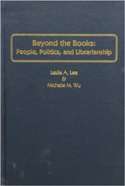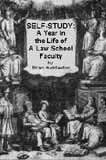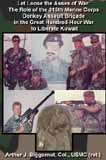So I was curious if I could find an example of this, just by searching for articles that quote language from unpublished opinions. Turned up at least one so far, in a unrelated bit of work where I noticed the following discussion of an unpublished decision.
In this student note from the Michigan Law Review:
Jennifer L. White, When It's OK to Sell the Monet: A Trustee-Fiduciary-Duty Framework for Analyzing the Deaccessioning of Art to Meet Museum Operating Expenses, 94 Mich. L. Rev. 1041 (1996)There’s a discussion of several unpublished cases at footnote 23:
23 There have been relatively few court cases dealing with deaccessioning. Judges tend to give one-time orders that do not provide insight into their decisionmaking processes and, as a result, offer no direction for future applicability. See, e.g. [...] Hammond Museum, Inc. v. Harshbarger, No. 92E- 0067-G1 (P. & Fam. Ct. Essex County, Mass. Oct. 5, 1992) (issuing no opinion, only a judgment stating that the museum was authorized to make the sale, to use the proceeds to pay off a bank loan, and, “if residual funds are available, to preserve the remaining artifacts of the museum and purchase similar ones, and do repairs, maintenance, and to make necessary improvements on the museum's real estate insofar as any of these are necessary to keep the museum open and functioning”)(Emphasis added.)
So this student at law school in Michigan quoted language from a four-year-old unpublished Massachusetts county court decision. Did she actually get a copy of the case? Possible, but not likely. But poke around for the quote and you’ll find this:
Elaine L. Johnston, Deaccessioning to Raise Operating Funds: Recent Cases, in Legal Problems of Museum Administration, American Law Institute - American Bar Association Continuing Legal Education ALI-ABA Course of Study March 24, 1993Which says, at 173:
The Massachusetts Attorney General consented to the Hammond's proposed deaccessioning, and the Court granted the Museum's request for approval. The Court did not issue a written opinion, but stated in its Judgement that the Museum was authorized to sell the designated artifacts and to use the proceeds from the sale to pay off the bank loan and, “if residual funds are available, to preserve the remaining artifacts of the museum and purchase similar ones, and do repairs, maintenance, and to make necessary improvements on the museum's real estate insofar as any of these are necessary to keep the museum open and functioning”.So the Michigan law student “quotes” the exact same language as the CLE author. Coincidence? Not likely. Lazy student dancing way too close to the line between sloppy research and plagiarism? Very likely.
Also, the student’s summary of the case that precedes the quoted text:
[I]ssuing no opinion, only a judgment stating that the museum was authorized to make the sale, to use the proceeds to pay off a bank loan [...]Is only a slight re-working of the CLE author’s summary:
The Court did not issue a written opinion, but stated in its Judgement that the Museum was authorized to sell the designated artifacts and to use the proceeds from the sale to pay off the bank loan [...]This is what I see our students do fairly regularly when they ask me to find some obscure document or case and it turns out they’ve already used it in some paper, but only read ABOUT it in some other resource but now need the original thing because a faculty member, or one of the journal editors, wants some other detail for the citation or something that the intermediary source where the student found the document or case did not contain.




No comments:
Post a Comment